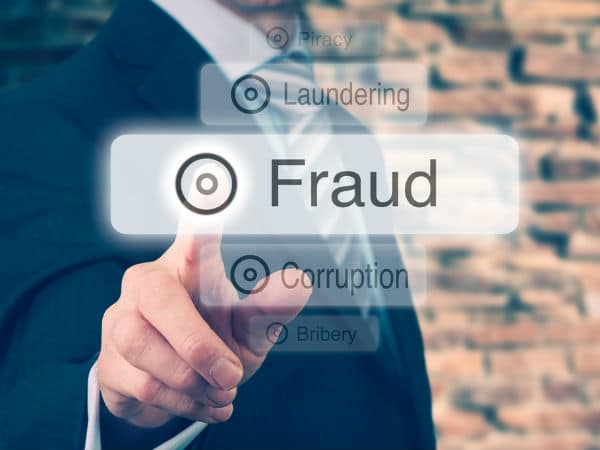Protecting Our Seniors: Recognizing and Avoiding Medicare Scams in 2024

As the population of older adults continues to grow, so does the prevalence of scams targeting this vulnerable demographic. Medicare fraud is a particularly concerning issue, as it exploits the trust and reliance of seniors on this essential healthcare program. In 2023, Medicare beneficiaries lost an estimated $2.2 billion to fraud, and experts predict this figure could rise in 2024.
Common Medicare Scams
Scammers often employ deceptive tactics to lure unsuspecting seniors into divulging personal information, signing up for bogus services, or making unnecessary payments. Here are some of the most prevalent Medicare scams to be aware of:
- Government Impersonation Scams: Fraudsters pose as representatives from Medicare, the Social Security Administration (SSA), or other government agencies, claiming to verify benefits, enroll in new plans, or investigate suspected fraud. They may demand sensitive information like Social Security numbers, bank account details, or Medicare card numbers.Legitimate Medicare representatives will never pressure you to sign up for a plan or provide your personal information over the phone. If you have any doubts, hang up and call Medicare directly at 1-800-MEDICARE (1-800-633-4227).
- Discount Drug Scams: Callers or emails may offer discounts on prescription drugs, falsely claiming to be affiliated with Medicare or pharmacies. Scammers will often offer free or discounted medical equipment, drugs, or services to gain your trust and then pressure you into providing your personal information or paying for additional services. Legitimate Medicare-approved plans do not offer these types of incentives. If you are interested in free or discounted medical equipment, drugs, or services, contact Medicare directly at 1-800-MEDICARE (1-800-633-4227) to find reputable providers.
- Healthcare Equipment Scams: Fraudsters may contact seniors offering free or discounted medical equipment, such as walkers, wheelchairs, or hearing aids. They may charge exorbitant fees for delivery, setup, or ongoing maintenance. Legitimate Medicare-approved plans do not offer these types of incentives. If you are interested in free or discounted medical equipment, drugs, or services, contact Medicare directly at 1-800-MEDICARE (1-800-633-4227) to find reputable providers.
- Life Insurance Scams: Callers may offer seniors life insurance policies with premiums they cannot afford or with coverage that is not suitable for their needs. They may pressure them into signing up without providing adequate information or reviewing alternatives. Medicare Advantage plans are private health insurance plans that must follow Medicare guidelines. If you are told that you can only get into a specific Medicare Advantage plan by working with a particular agent, it is likely a scam. If you are interested in a Medicare Advantage plan, contact Medicare directly at 1-800-MEDICARE (1-800-633-4227) or visit the Medicare website at https://www.medicare.gov/ to find a plan that is available in your area.
Protecting Yourself from Medicare Scams
To safeguard yourself and your loved ones from Medicare scams, follow these essential tips:
1. Vigilance against Telemarketers:
Never provide personal information or financial details to an unsolicited caller. If you have any doubts about the legitimacy of a call, hang up immediately and contact Medicare directly using the toll-free number on the back of your Medicare card.
2. Verification of Official Communications:
Medicare will never contact you unsolicited to sell or enroll you in a plan. If you receive an email or letter claiming to be from Medicare, double-check the sender’s address and contact information to ensure it is legitimate.
3. Protecting Sensitive Information:
Keep your Social Security number, Medicare card number, and other sensitive information confidential. Shred or destroy old documents containing this data.
4. Discerning Discount Offers:
Be wary of unsolicited offers for discounted prescription drugs or healthcare equipment. Verify the legitimacy of the company and compare prices with reputable sources.
5. Careful Evaluation of Needs:
Carefully consider your healthcare needs and discuss them with your doctor or a trusted healthcare professional. Avoid making impulsive decisions based on pressure from salespeople.
6. Prompt Reporting of Suspicions:
If you suspect you have been targeted by a Medicare scam, report it immediately to Medicare at 1-800-MEDICARE (1-800-633-4227) or the Federal Trade Commission at 1-877-FTC-HELP (1-877-382-4357).
Reporting Medicare Scams
If you believe you or someone you know has been a victim of a Medicare scam, there are several ways to report it:
- Contact Medicare directly at 1-800-MEDICARE (1-800-633-4227). Medicare representatives will take your report and investigate the scam.
- File a complaint with the Federal Trade Commission (FTC) at 1-877-FTC-HELP (1-877-382-4357). The FTC will investigate the scam and take action against the perpetrators.
- Report the scam to your local Senior Medicare Patrol (SMP). SMPs are organizations that provide education and outreach to Medicare beneficiaries and investigate Medicare fraud.
When reporting a Medicare scam, be sure to provide the following information:
- The name of the person or company you believe is involved in the scam
- The date and time of the incident
- Any specific information about the scam, such as the type of scam or the amount of money you lost
- Any documentation you have, such as copies of emails or voicemails
Reporting Medicare scams is important because it helps to identify and stop these scams from happening to others. It also helps to protect Medicare beneficiaries from financial losses.
Here are some additional tips for reporting Medicare scams:
- Be as detailed as possible in your report.
- Do not provide any personal information to the scammer, such as your Social Security number or Medicare number.
- If you have already provided personal information to the scammer, contact your bank or credit card company immediately to put a fraud alert on your account.
- If you have lost money to a scammer, file a police report.
By following these tips, you can help to protect yourself and others from Medicare scams.
